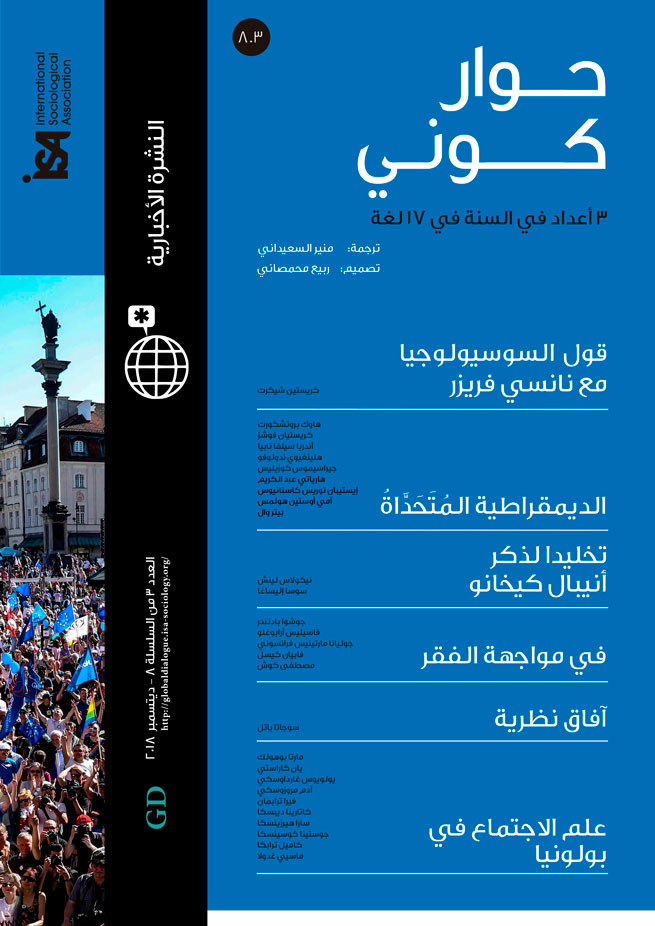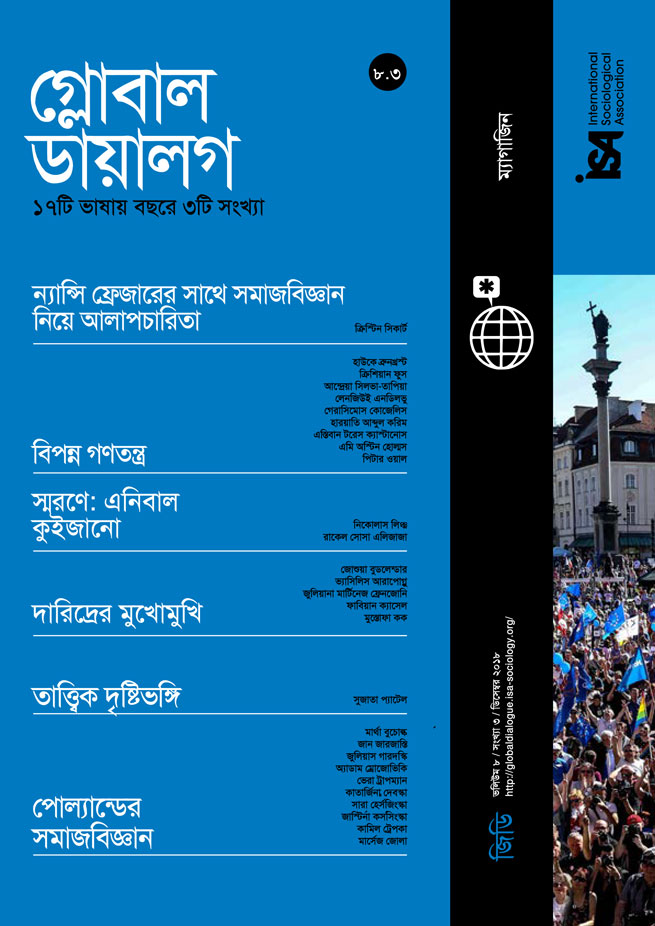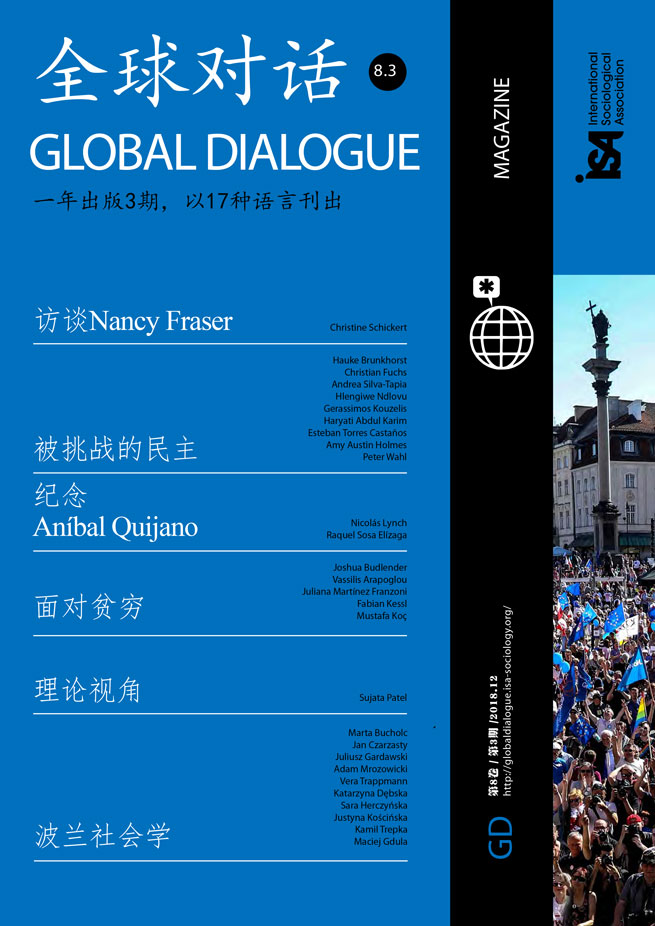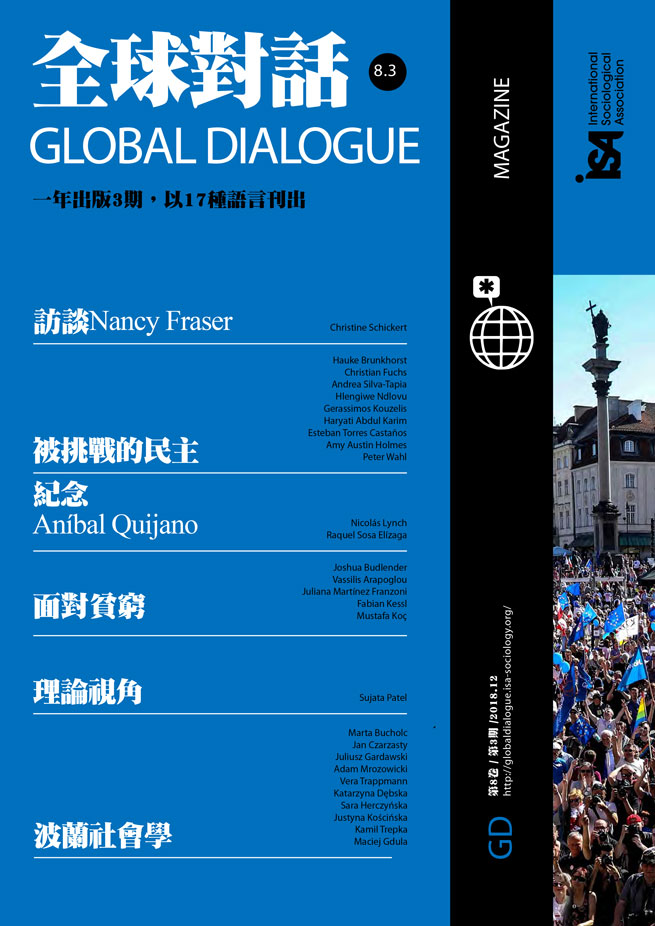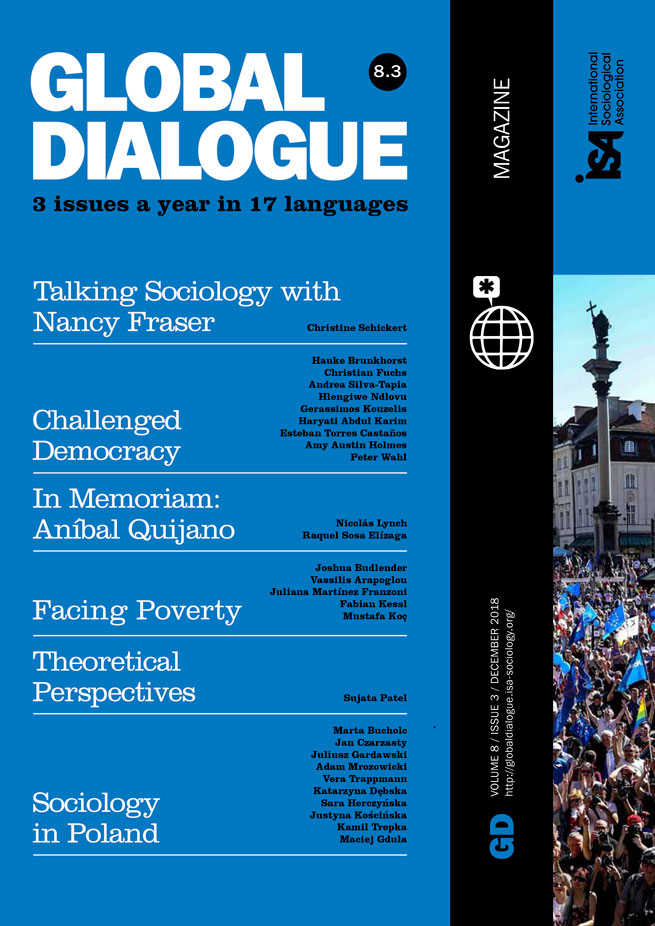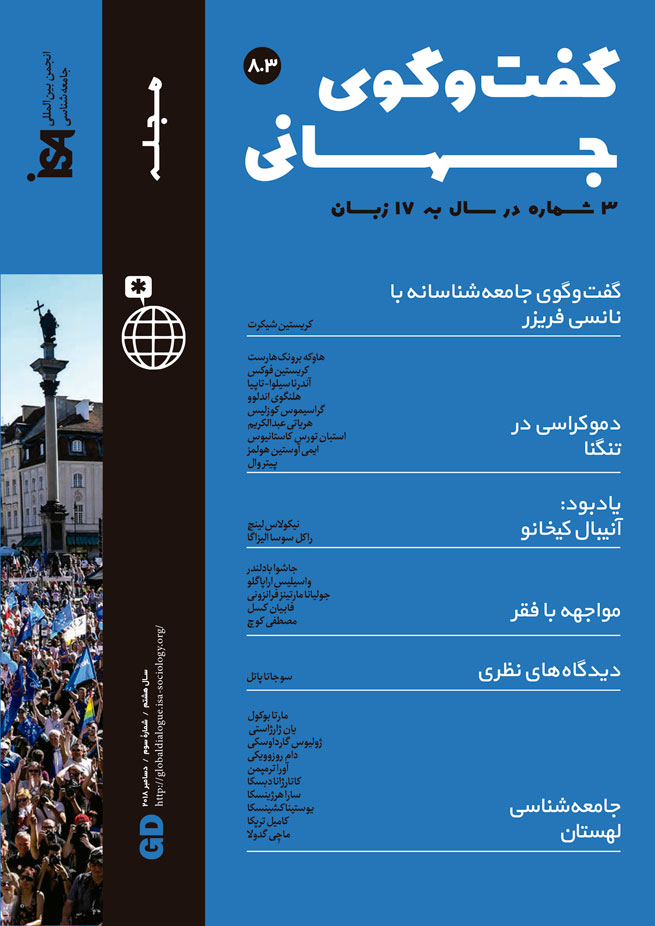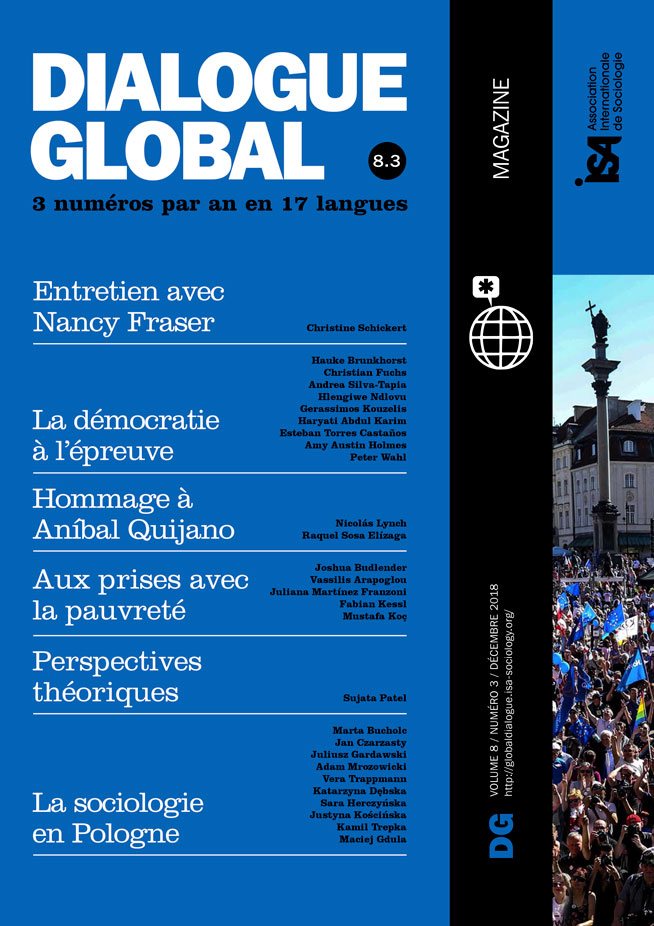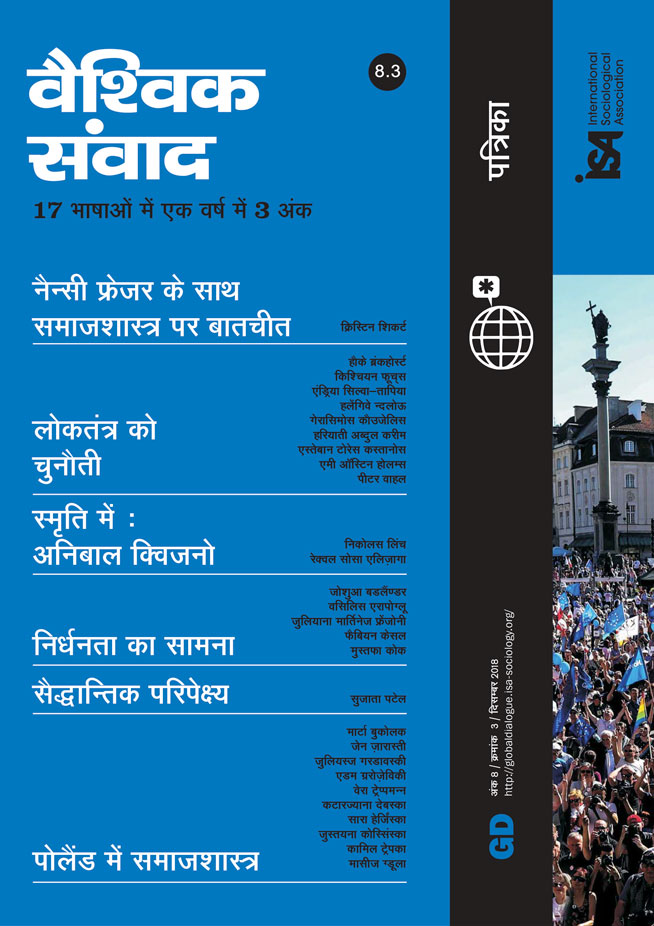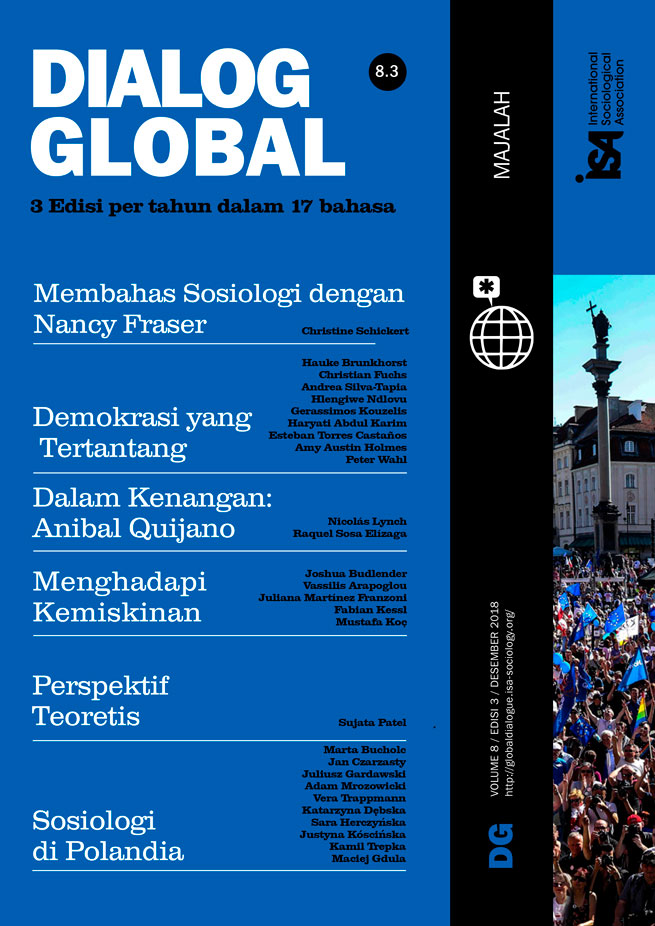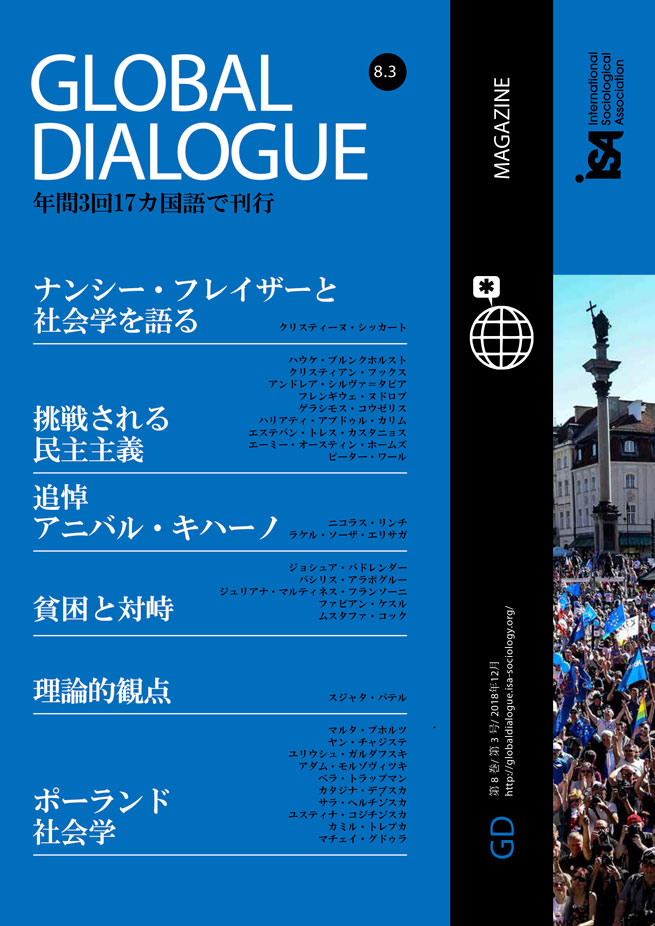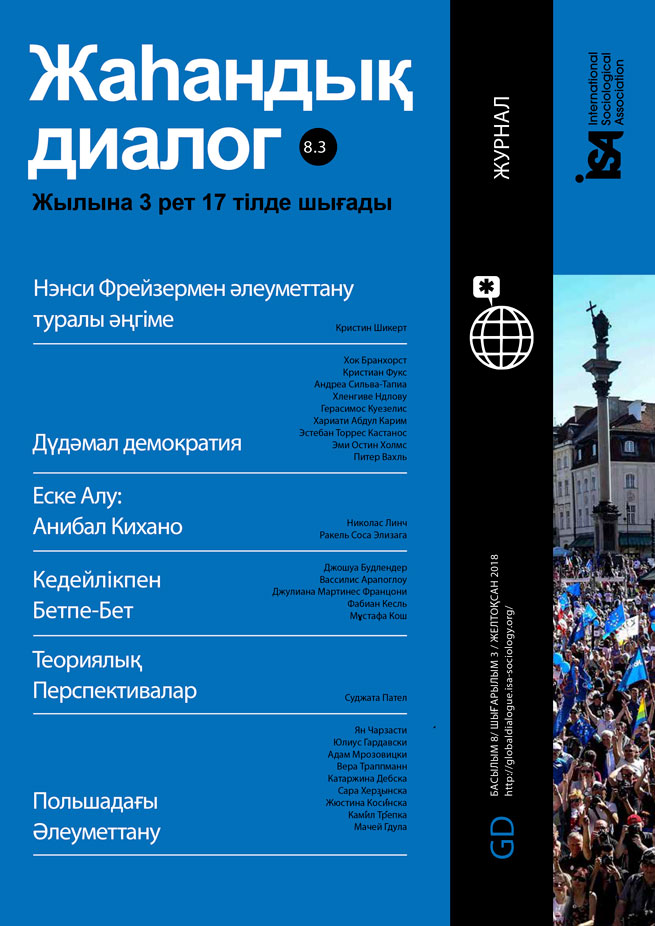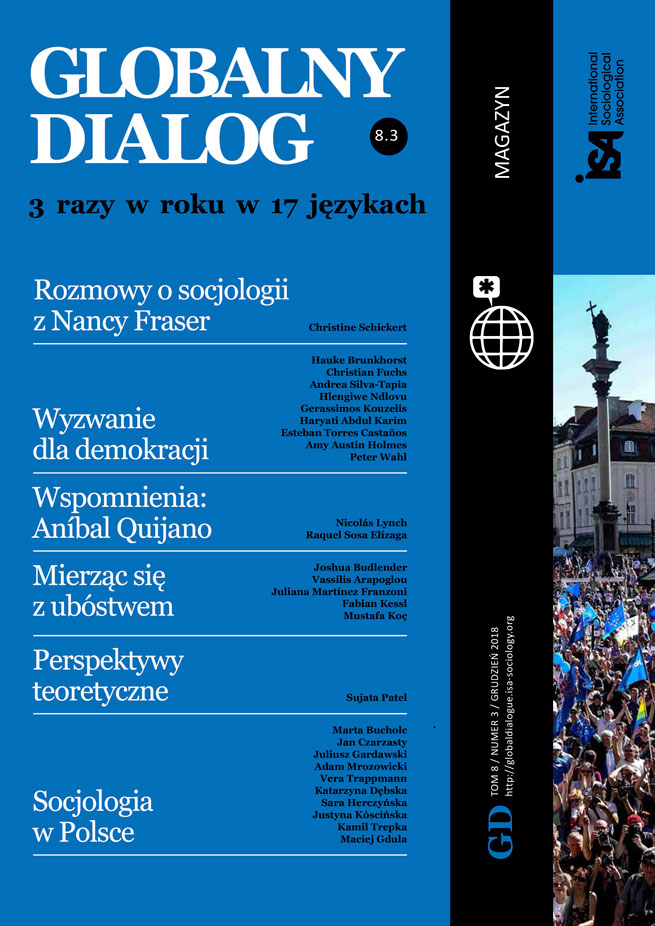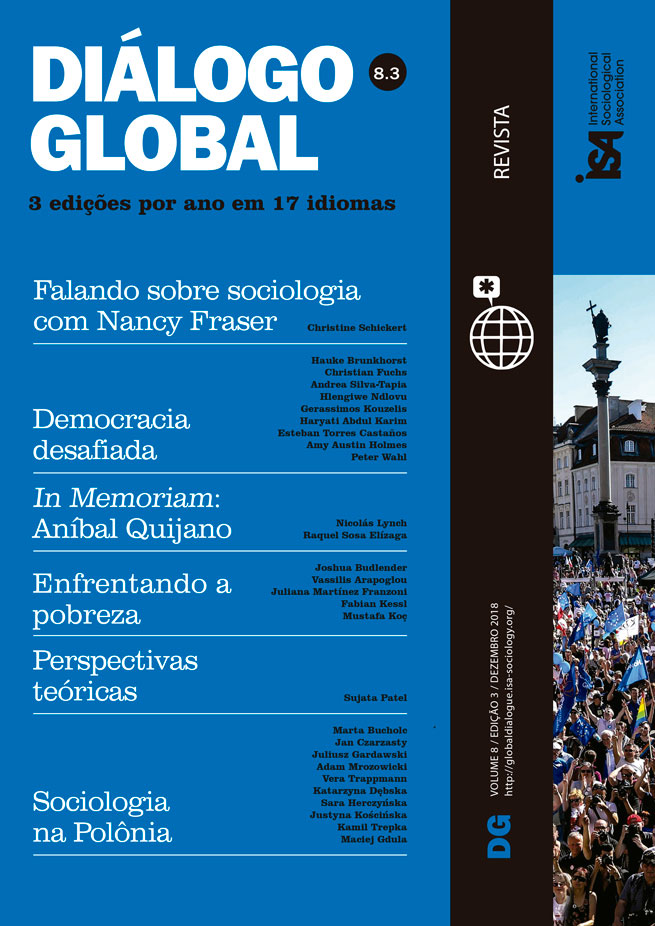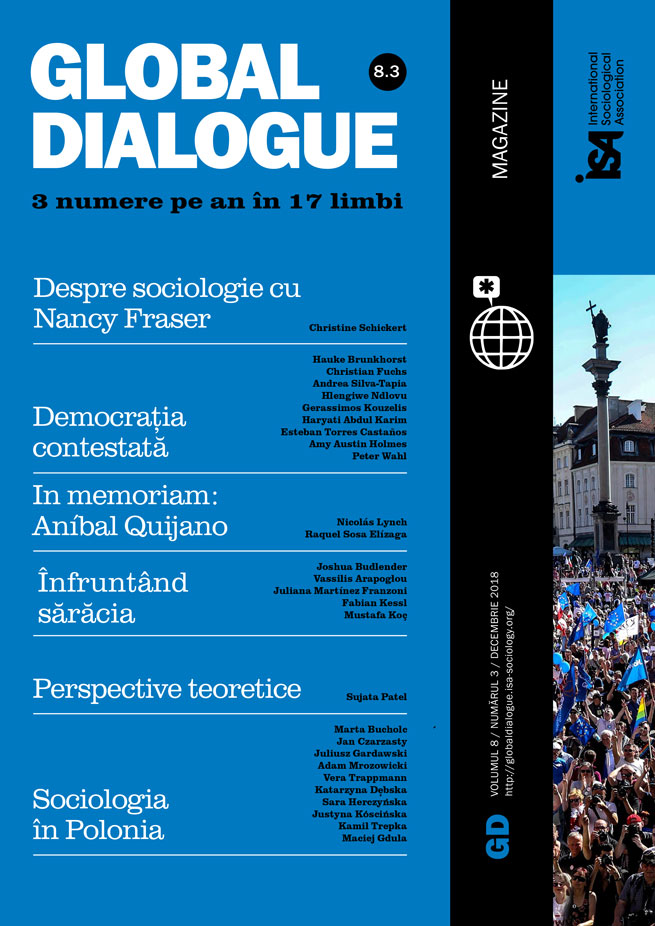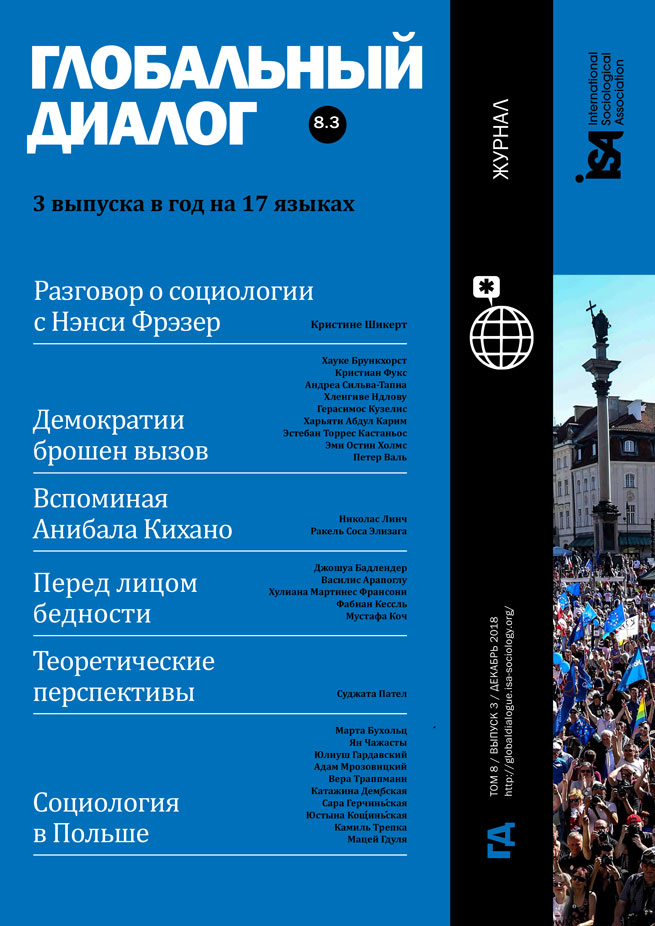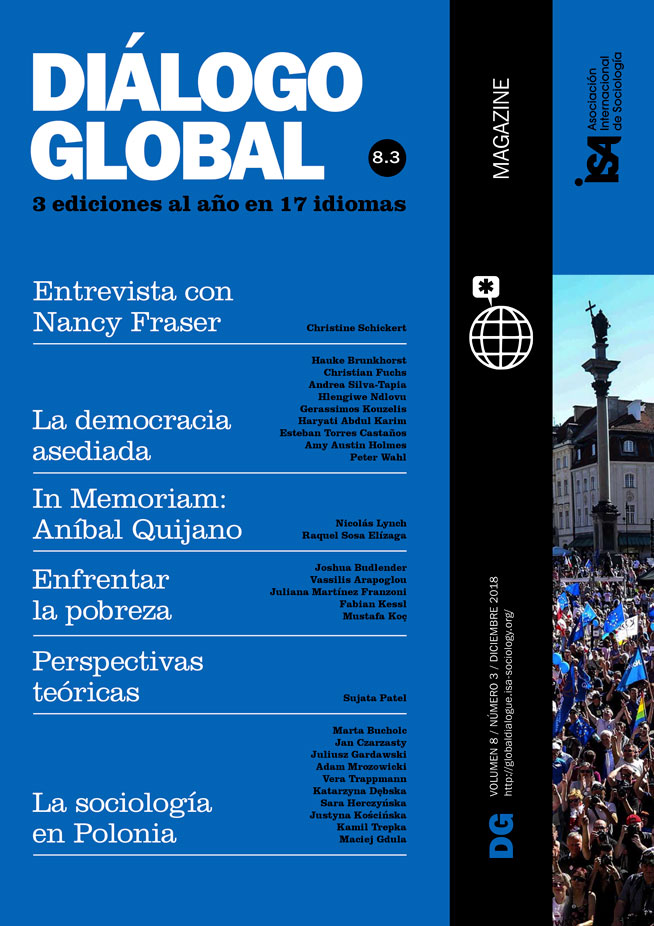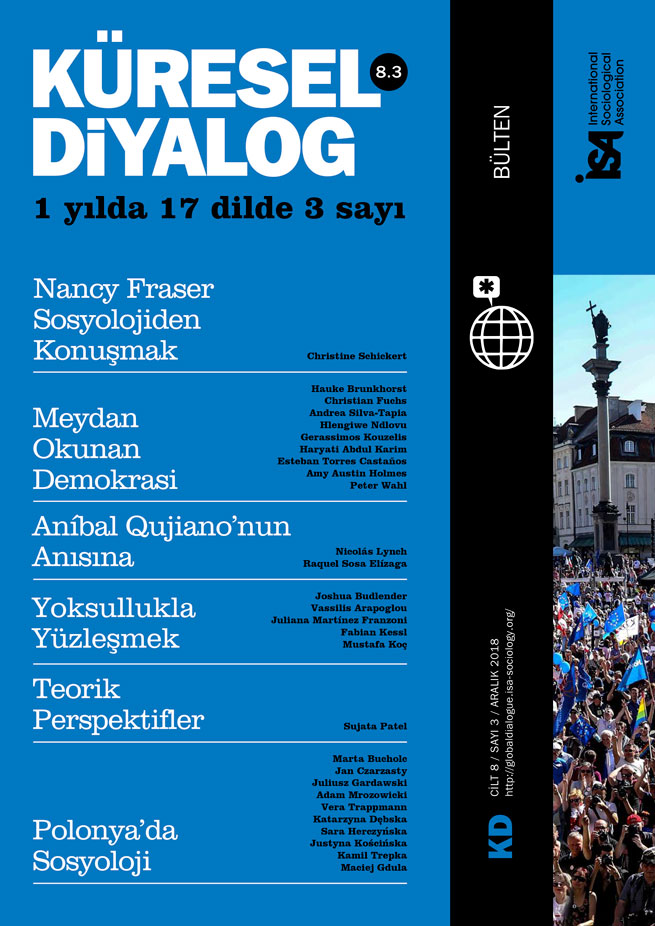Global Modernity
December 04, 2018
Since the late 1990s, the term “global modernity” has been increasingly used in literature that debates the nature and content of theories of the globalizing world. The term itself combines two concepts, globalization and modernity, and rephrases the theories of each as they connect to each other.
Theories of global modernity initially emerged from mainstream sociological deliberations that interrogated the relevance of classical theories in assessing contemporary changes within the Global North. This question led to the formation of other questions, one of which was whether the modernization theories of the 1950s and 1960s modeled on classical sociological positions and emulating the European experience could continue to be useful for the comprehension of the modernity being articulated across the globe. It was soon recognized that the modernization model in reality homogenized and made hegemonic the European experience by arguing that the institutional organization and cultural features representing the modernization process in Europe would replicate themselves across the world. What was needed, the scholarship suggested, was a perspective that displaced the convergence theory of modernity with one that recognized the differences organizing the modern experience across the various regions of the globe.
The acceptance of this position within mainstream sociology opened up a Pandora’s box. It allowed for interventions into this theme from a range of perspectives having distinct genealogies such as Weberian, Marxist, structuralist, and post-structuralist and juxtaposed these with others that had developed outside the Global North, termed indigenous and/or Southern theories. The entry of these new and novel standpoints extended the theme’s scope and reach, constituting it as a separate area of study and reflection. Presently the scholarly area defined as global modernity deliberates a wide number of concerns that are ontological, epistemological, and methodological regarding the substantive theories of modernity, thereby opening up the fundamentals of the discipline of sociology to debate once again. In this short note, I outline three sets of perspectives that have emerged since the late 1980s and early 1990s. These are the theories of multiple modernities, indigenous and Southern theories, and the standpoint of decolonialism.
Multiple modernities
The theory of multiple modernities has many variants and has involved many contributors. The term was conceptualized by Shmuel Eisenstadt, who in many ways has been the architect of this position and who linked modernity to civilization studies; however this perspective also involves interlocutors who avoid characterizing modernity as civilizational. What connects the scholars of this perspective together are the following assumptions: a) there is not one but many modernities, i.e. modernity is not singular but plural; b) though modernity’s institutional expressions may be similar, its differences are related to the distinct cultural backgrounds of each society; and c) to comprehend these differences there is a need to reframe classical sociological theories.
Thus multiple modernities scholarship first draws from European ideas and positions to ask historical and philosophical questions regarding the distinct ways different European experiences of modernity were organized. It then inquires whether these differences present a formulation to organize a framework for assessing the differences across the globe. Second, scholars try to query the constituents of modernity’s core as against its peripheries. Eisenstadt has argued that the core of modernity is human agency. He characterizes this agency as autonomous, rational, creative, and free. Third, if the core of human agency is that of rationality, how did this core manifest itself differently across the world? Eisenstadt argues that this core – rational human agency – has its origin in the distinct religiosities of Axial civilizations. However it was in the Christian-European Axial civilization that the attributes of modernity emerged first and were later diffused. This Western model was not accepted in its original mold and pattern and its cultural attributes were selected, reinterpreted, and reformulated as these engaged with the received features of each Axial civilization. As a consequence, new core features emerged; these constituted later versions of modernities. Thus, while there will always be a convergence across the world with regard to the central aspects of institutionalization, such as occupational and industrial structures or those in education and city-formation, there will be differences in the way institutional dynamics and related problems develop as agency and structure interact with each other.
It has been suggested that the multiple modernities thesis contributed to the cultural turn in contemporary social theory. It is clear from the above that material processes find little to no representation in this discussion of modernity. Additionally, though this thesis argues for historicity, there is no reference to colonialism, its organization of modernity, its exploitative processes, and its relationship to knowledge systems and especially those of the social sciences. The perspectives addressed below tackle these issues.
Indigenous and Southern theories
Indigenous theories start with the assumption that social sciences need to have autonomy to frame the epistemic concerns in their regions. They accept Raewyn Connell’s argument that unequal power between the metropole and the periphery organized social sciences and that this has led to the universalization of Northern theories and their viewpoints, perspectives, and problems. Within Southern scholarship two concepts assess this process. The first is “extroversion” as conceptualized by Paulin Hountondji who defines it as externally oriented social sciences. The other is “academic dependency,” as conceived by Syed Farid Alatas. The latter argues that Western knowledge is imposed on the rest of the world. It thus remains non-contextual and non-relevant. These scholars thus argue for a need to frame alternative sociologies from within “indigenous” narratives/cultures.
Indigenous theory argues that if social sciences grew in the West through an engagement with its philosophical systems, it is also possible to do the same from other cultures and philosophical systems. It wishes to give an epistemic voice to itself in order to displace the power of the West’s epistemic voice. It believes it can create principles/abstractions that are sensitive to indigenous history and social life and help to formulate “alternative” ways of doing sociology outside the language of “universal sociology” as formulated by Western/Northern sociology.
There are three identifiable trends within this perspective. The first is elaborated by Akiwowo Akinsola, a Nigerian sociologist. He affirmed that sociology can be constituted from the tales, myths, and proverbs of its people together with “the laws of true African wisdom.” He and his colleagues put together a sociological theory extracted from the poetry of the Yoruba tribe of Nigeria. They argued that the principles within this poetry suggest that the unit of all social life is the individual and because the individual as a “corporeal self needs fellowship of other individuals,” community life based on common good is significant to the existence of the individual. This position has been questioned for the various methodological and epistemic problems that it represents, such as the use of folk culture to construct a sociological theory, the “truth” of its translation and interpretation, and whether its formulations can be interrogated by scientific methods.
The second trend in indigenous studies has tried to answer the last question – of being able to stand up to interrogation by scientific methods – by suggesting that Western science needs not be affirmed as being the only one in the world. Arguing for an autonomous social science that is both relevant and critical, Syed Farid Alatas reframes the problematic of indigenous theory by asking whether distinct cultures and their epistemologies can be used to constitute new critical scientific work. He contends that indigenous knowledge systems, such as that of Islam, have within them a scientific criticality that can interrogate empirical work. He asserts that these principles can also be used to constitute ways of doing sociology. The question that he poses is: how does Islam provide the metaphysical and epistemological basis for the constitution of new knowledge without committing to an Islamic sociology or an Islamic physics? Such an intervention would not mean abandoning science, especially its moorings in critical and investigative thinking, but, rather, enlarging its canvas and including novel notions of criticality from a non-Western culture.
A third approach to the indigenous emanates from the work of Linda Tuhiwai Smith whose focus is also on Western science. She argues that it is necessary to displace its scientific practices because these make the subject into an object of investigation. Western science imposes “the truth” on peoples and regions of the world by not involving itself with insider knowledge. She suggests a need for re-doing the methodology of science and argues for a science that is sensitive to the cultural values of the individuals, the community, and the people that are being investigated. She asks researchers to reflect on ways to de-stabilize the power of the objectivist research processes and to integrate the voice of the subaltern/indigenous into the research process.
These three trends interrogate academic practices within the South. A more revolutionary position has emerged from the decolonial perspective that follows Marx’s directive that social sciences need to change the world rather than only reflect on it.
The decolonial perspective
Decolonial theory/perspective – also called the colonialism/modernity research program – is an intellectual movement originating in the Latin American region. It draws from a combination of perspectives including dependency theories, liberation theology, and social movement theorizations representing the Latin American experience. Its canvas is wide: it argues that it is necessary to make an epistemic and thus a methodological critique of the European theories of modernity such that new and novel epistemic positions can be articulated. It argues for the reformulation of social sciences through the creation of new assumptions that can stretch the inquiry of modernity to the “very borders of thought.”
It starts by suggesting that the major fault line in contemporary modernity theories and in sociology is the erasure of the colonial experience from its theoretical language. It argues that this invisibility has made contemporary theories of modernity ethnocentric. It gives a name to this ethnocentrism and calls it Eurocentrism. Eurocentrism for the decolonialists is an episteme that embeds all branches of social sciences and is particularly manifest in the disciplines of history and sociology. Three categories string together this position: “coloniality of power” theorized by Aníbal Quijano; “interiority/exteriority” conceptualized by Enrique Dussel; and “colonial difference” conceived by Walter Mignolo. All three overlap with each other.
Coloniality of power, according to Quijano, is built on two Eurocentric myths: evolutionism and dualism. On the one hand, evolutionism organizes history as a linear narrative, as moving from the primitive to the modern. This linearity, conceptualized during the early periods of European modernity, has been imposed in interpreting non-European histories of the world. Dualism is another device and myth used by Eurocentrism to distinguish Europe’s history and society from non-European ones. Thus through dualism, Eurocentrism constitutes the knowledge of the other as its opposite and in binary terms. Embedded in this binary is hierarchy: this places European history and society as being superior (given that it was first to create modernity) and the rest as being inferior.
Coloniality of power argues that Eurocentrism constitutes theories justifying the control of: a) economy through land appropriation, exploitation of labor, control of natural resources; b) authority through the institutions of army, police, and political power; c) gender and sexuality through the family and education system; and d) subjectivity and knowledge through the elaboration of epistemology/knowledge systems.
Walter Mignolo’s concept of colonial difference (the division of modernity from coloniality and its use to create further divisions and differences in knowledge) continues the problematic established by the “coloniality of power” and elaborates it as an epistemic tool that privileges the intellectual and political space of and for Europeans. Mignolo suggests that this concept helps to comprehend the objectification of the colonial world and its peoples, the subordination of their imaginaries and their knowledge.
Enrique Dussel reframes Quijano’s myth of evolutionism to argue that contemporary history is designed as a theory of interiority extrapolated from regional European history to build on the myth of it being both universal and linear. He suggests that what is needed is a research program of and for modernity as a theory of exteriority, a way of perceiving the world from outside Europe, from a de-colonized standpoint. The need is to redraw existing contemporary philosophical, social, and historical assumptions in social science and to present alternative ones based on the voices of the non-colonized. The goal here is extremely ambitious: it is to reorganize the episteme of social sciences as it was constituted in the late eighteenth century and create new research agendas for redrawing the themes, specializations, and questions in order to re-frame the very foundations of the social sciences.
Sujata Patel, Indian Institute of Advanced Study, India and member of ISA Research Committees on History of Sociology (RC08), Urban and Regional Development (RC21), Conceptual and Terminological Sociology (RC35), Historical Sociology (RC56), and board member of RC08 <patel.sujata09@gmail.com>

